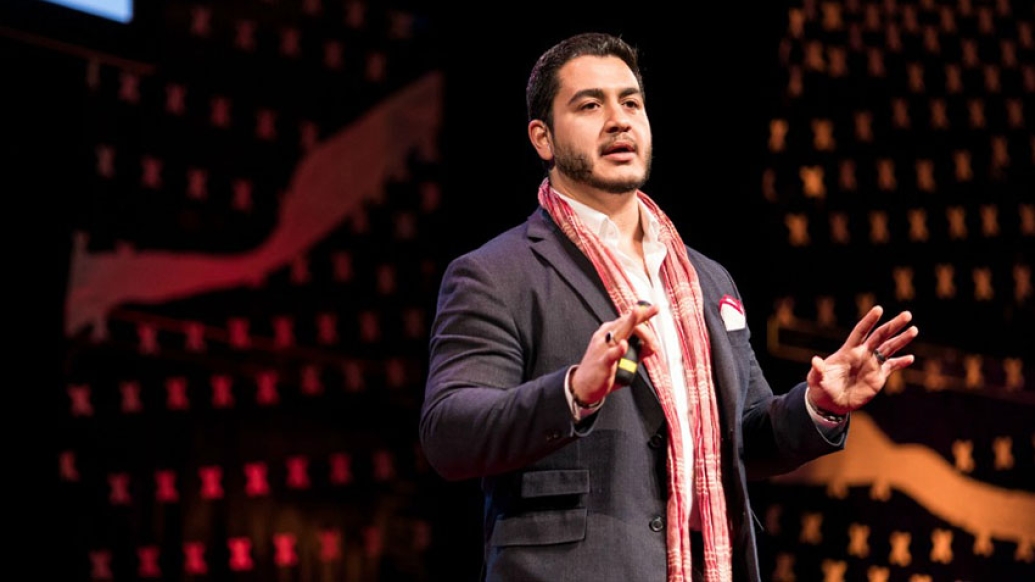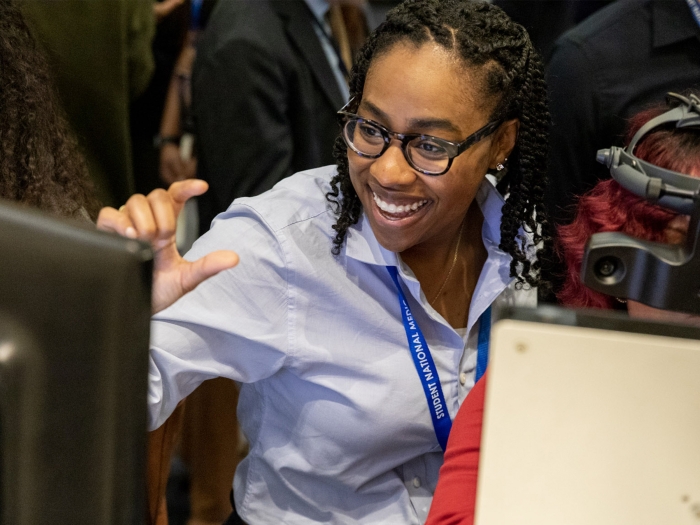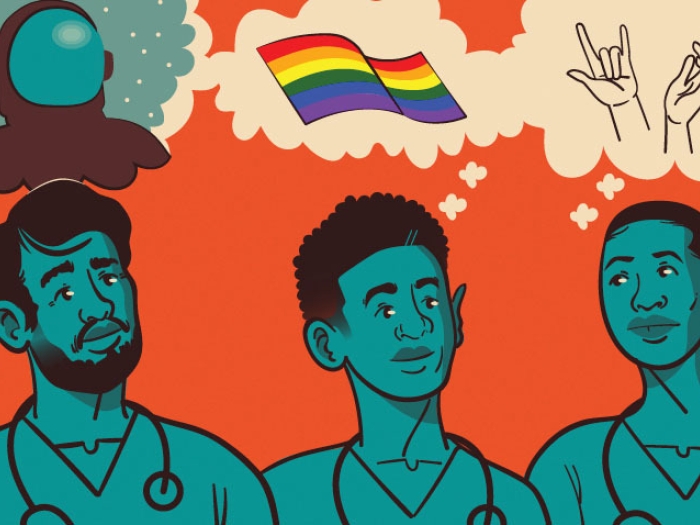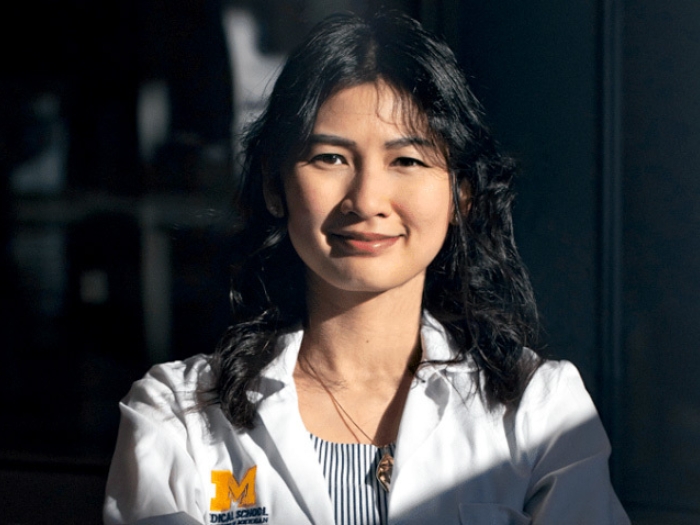U-M alumnus and 2018 Michigan gubernatorial candidate Abdul El-Sayed, M.D., Ph.D., shares advice for the future with new medical school graduates
8:44 AM
Author |

Doctors are in a unique position to stand up for people, their patients and the communities to which their patients belong, says Abdul El-Sayed, M.D., Ph.D. And he plans to challenge the University of Michigan Medical School's newest graduating class of doctors to truly become leaders as the featured speaker at their commencement ceremony on May 9 in Hill Auditorium.
El-Sayed is a physician, epidemiologist, public health expert, U-M alumnus and 2018 Michigan gubernatorial candidate who once served as health commissioner in Detroit. While there, he rebuilt Detroit's Health Department after it had been privatized during the city's municipal bankruptcy. Under his leadership, the department created programs to provide every child in the city with a free pair of glasses; worked to improve environmental impact on health by reducing emissions and investing in parks; and had every school, day care and Head Start building tested for lead in the water.
During his runner-up candidacy for the Democratic nomination for governor, El-Sayed also focused on public health, education, diversity and dialogue.
El-Sayed completed his undergraduate work in 2007 at U-M, graduating with highest distinction and Phi Beta Kappa, while also serving as a starting defenseman on the men's lacrosse team. He holds a doctorate in public health from Oxford University, where he was a Rhodes Scholar, as well as a M.D. from Columbia University.
Before the commencement ceremony, El-Sayed spoke to Michigan Health Lab.
What advice do you have for the graduating class?
As physicians, all of us will work in institutions of some kind. Those institutions have stated goals, or aims that they say they serve. Those institutions also have a way of shaping our goals and aims, by offering us gold stars, like grades, promotions and awards. But sometimes, those institutions fail their stated values. And they ask us to do the same.
Those are the moments that define us: Do we continue to allow those institutions to continue to shape our goals? Or do we stand up and hold those institutions accountable?
Doctors are in a unique position to stand up for people, their patients and the communities that their patients belong to. Doctors are leaders. But right now, so many of our health care institutions are failing their stated aims. As doctors, are we willing to stand up to drive them in the right direction … to be leaders? Or will we allow them to redefine our morals?
Tell us about your previous healthcare experience, including your role with the City of Detroit. What were some of the most rewarding lessons you've learned along the way?
As health director, I met a boy named DeMarius. He was the third child of a 21-year-old mother, and he had never met his father because his dad was in jail. You know, most three-year-olds hide behind their mother and give you this little shy wave, but not DeMarius. When he first saw me, he ran out and gave me the biggest hug. I always reflect on that. How much confidence DeMarius had, despite how much the world had stacked against him.
DeMarius lives in a city with a higher infant mortality rate than my father's native Egypt and also in a city where he is more likely to end up in jail than on a college campus. DeMarius taught me that, first and foremost, our work must always center around helping him and kids like him.
The most rewarding moment in my career was the moment I got to put a pair of glasses on a little boy who reminded me a lot of DeMarius. We had worked for six months to build a program to provide every child in Detroit with a free pair of prescription glasses delivered to their school if they needed them.
Your career is unique, in that you aren't simply a physician. How have you melded your medical background with your community activism and other professional roles?
I think these efforts are one in the same. I became a doctor because I love science, and I love people. I wanted to leverage science to serve people. Sometimes, we forget that at our cores, our craft of medicine is about dignifying people … through empathy, through action, through bearing witness. I decided to do those things as a public servant and as an activist for causes that center around people.
How can our emerging doctors best contribute to the greater good?
If you do this right, you have an incredible opportunity to listen to and serve people in pain. You're in the best position to understand who they are and why they suffer. Don't ever forget that your ability to serve others extends well beyond your clinic or hospital. It extends into the communities in which your patients live and learn and work and play.
Click here to watch video of the event: http://michmed.org/Q2o29.
For more information about all degree programs at the U-M Medical School, click here: http://medicine.umich.edu/medschool/education.

Explore a variety of healthcare news & stories by visiting the Health Lab home page for more articles.

Department of Communication at Michigan Medicine
Want top health & research news weekly? Sign up for Health Lab’s newsletters today!





